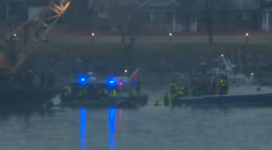On November 14, foreign ministers belonging to the North Atlantic Treaty Organization (NATO) received a letter signed by the World Council of Churches (WCC) and Commission of the Churches on International Affairs (CCIA) director, Peter Weiderud, saying that NATO's commitment to the undetermined maintenance of nuclear weapons violates ethical and legal responsibilities and also threatens global security.
The letter refers to a 1997 International Court of Justice decision stating that in accordance with Article VI of the Nuclear Non-Proliferation Treaty (NPT), "there exists an obligation to.. bring to a conclusion negotiations leading to nuclear disarmament." Hence, the WCC argues, "Complete nuclear disarmament is an urgent moral imperative" in addition to "a legal obligation".
The WCC is urging the ministers, who are meeting next week at a NATO summit meeting in Prague, to set NATO "on a course of irreversible nuclear disarmament in accordance with the requirements of the NPT." They urge the ministers to: 1) confirm NATO's commitment to early progress toward the worldwide elimination of nuclear weapons; 2) commit NATO to reduce the alert status of nuclear weapons possessed by member states and pursue successful provision for a hasty de-alerting of nuclear weapons owned by those states; 3) renounce the launch of nuclear weapons use by any Alliance member under any circumstances and entrust it to correspond and receive commitments from other nuclear states; and 4) take immediate action to eliminate nuclear weapons from the territories of non-nuclear-weapon states and return them to the country owning them.
The chief concern of the WCC is NATO's declaration stating that nuclear weapons are "essential" to the security of its constituent nuclear capable states, and that they intend to retain their nuclear arsenals "for the foreseeable future." This letter also discusses the US position on nuclear weapons, and expresses the WCC concern regarding US indications that nuclear forces will continually provide assurance to security partners, especially in the presence of known or suspected nuclear, biological or chemical threats, or of surprising military developments.
The WCC clearly stated in their letter that, "There is no circumstance in which the use of nuclear weapons could be conceived of as contributing to human security or carrying out the purposes of a loving God." In addition, the letter states that the possibility of spreading such weapons to other states or not-state members merely adds to their combined peril, reminding NATO leaders of their "grave responsibility to lead the world toward the rapid and early elimination of nuclear weapons and to support effective multilateral mechanisms to permanently prevent their reemergence and spread."
By Cassandra L.





![Saving Gen Z’s Faith: Steve Richardson’s Bold Call to a New Generation of Missionaries [Exclusive Interview]](https://www.gospelherald.com/media/cache/thumbnail/7/21/72196sp_273w_150h_1x_1y.jpg)

